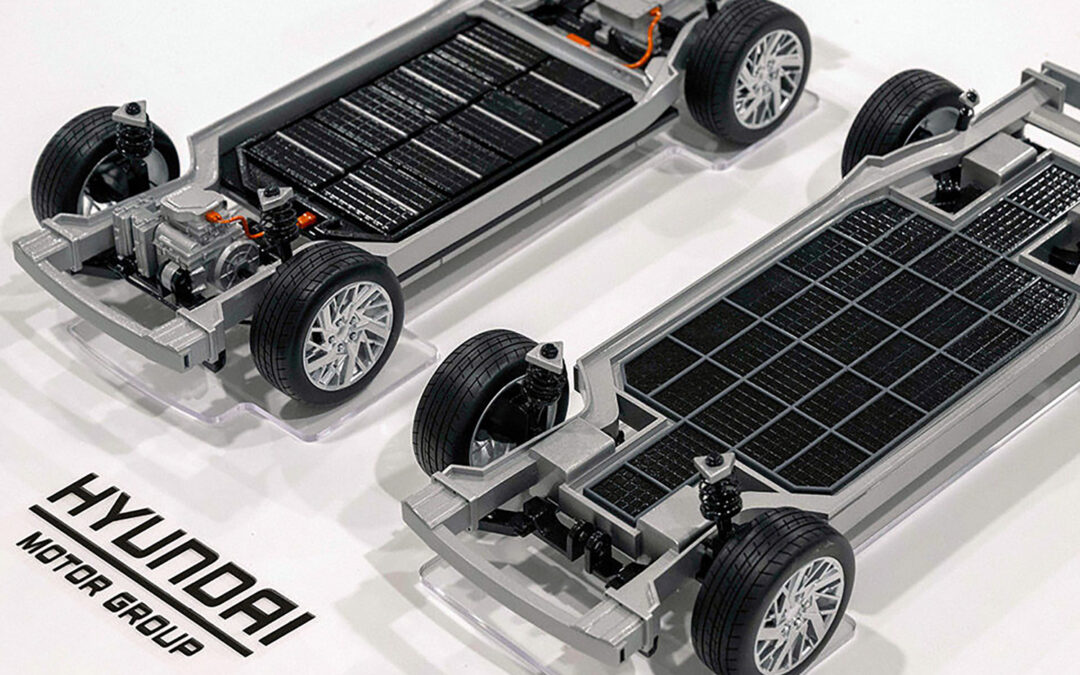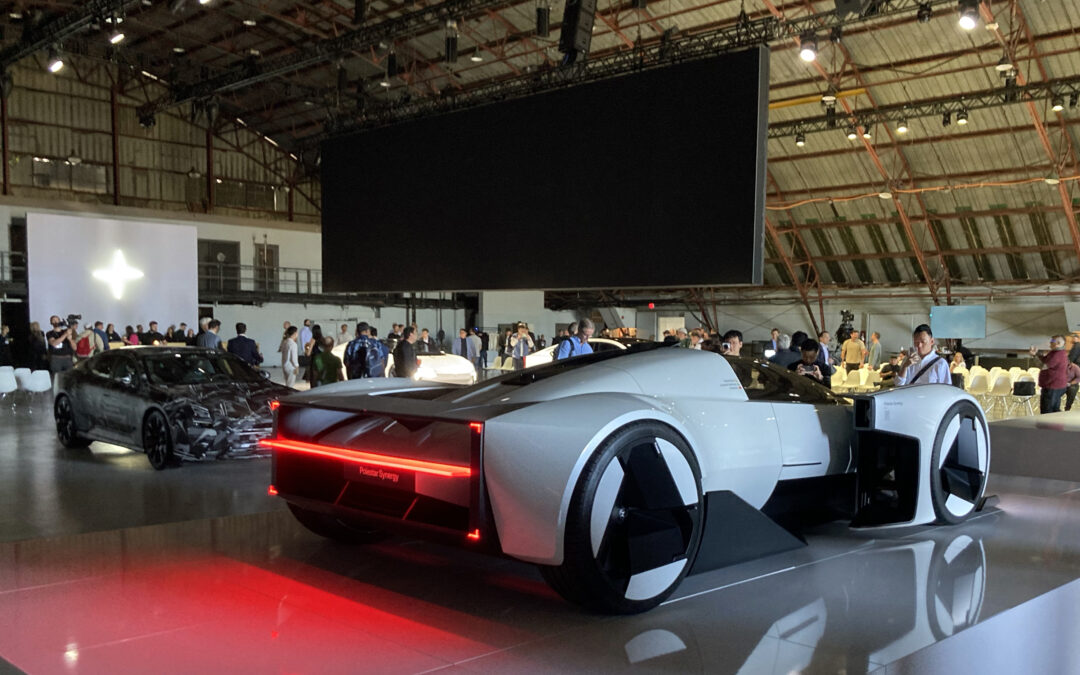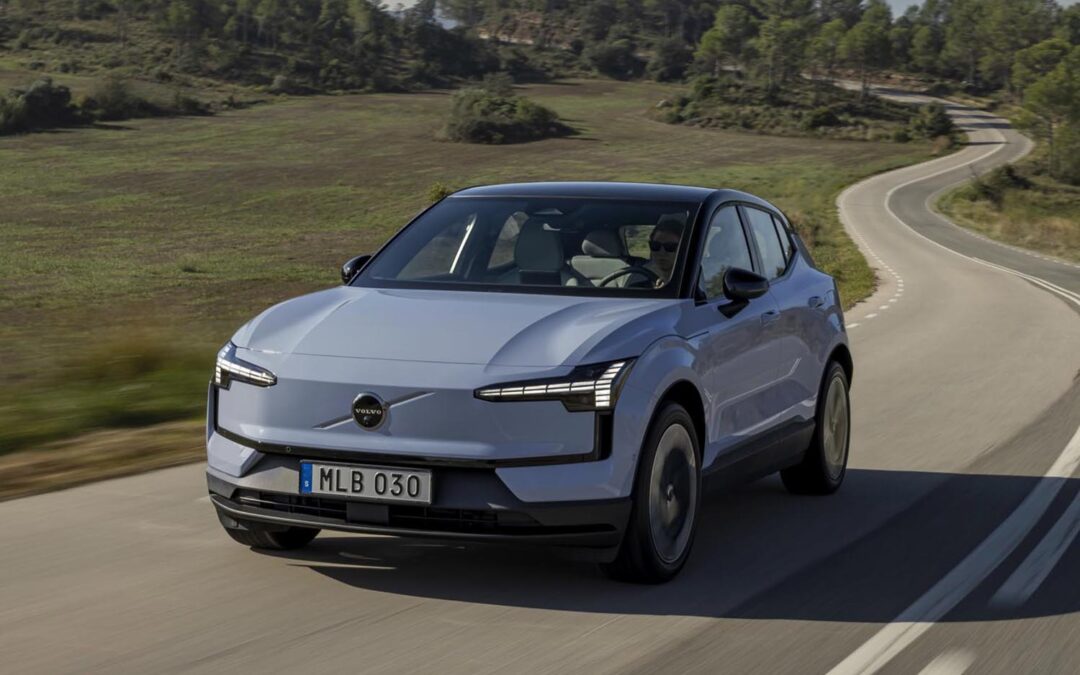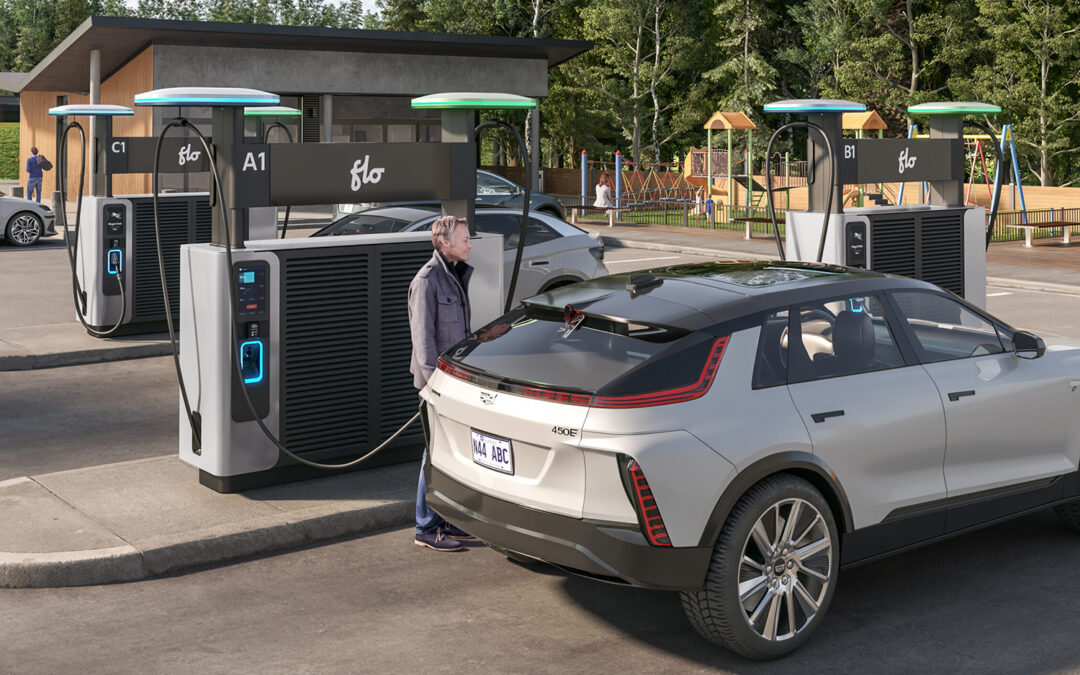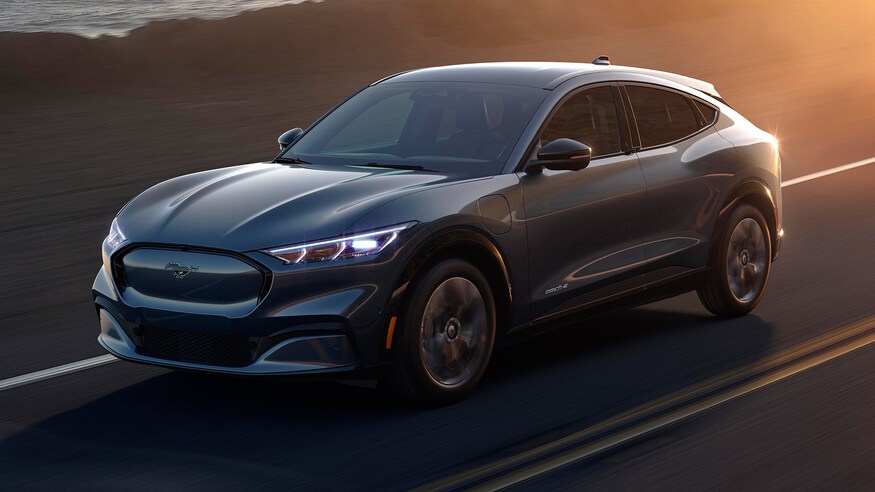Toyota has revealed 11 electric concept cars during an online media briefing that outlines the corporation’s strategy for carbon neutrality.
Presented alongside the near-production Lexus RZ and a new Sports Battery EV inspired by the LFA, the 11 electric concepts represent the two categories of vehicle with which Toyota aims to reduce its C02 emissions over the course of the decade: ‘carbon-reducing’ (i.e. plug-in hybrids) and ‘carbon-neutral’ (EVs). Both categories form the basis of the Toyota Motor Corporation’s plan to deliver “an EV for everyone” and, equally, sell 3.5 million EVs annually worldwide by 2030.
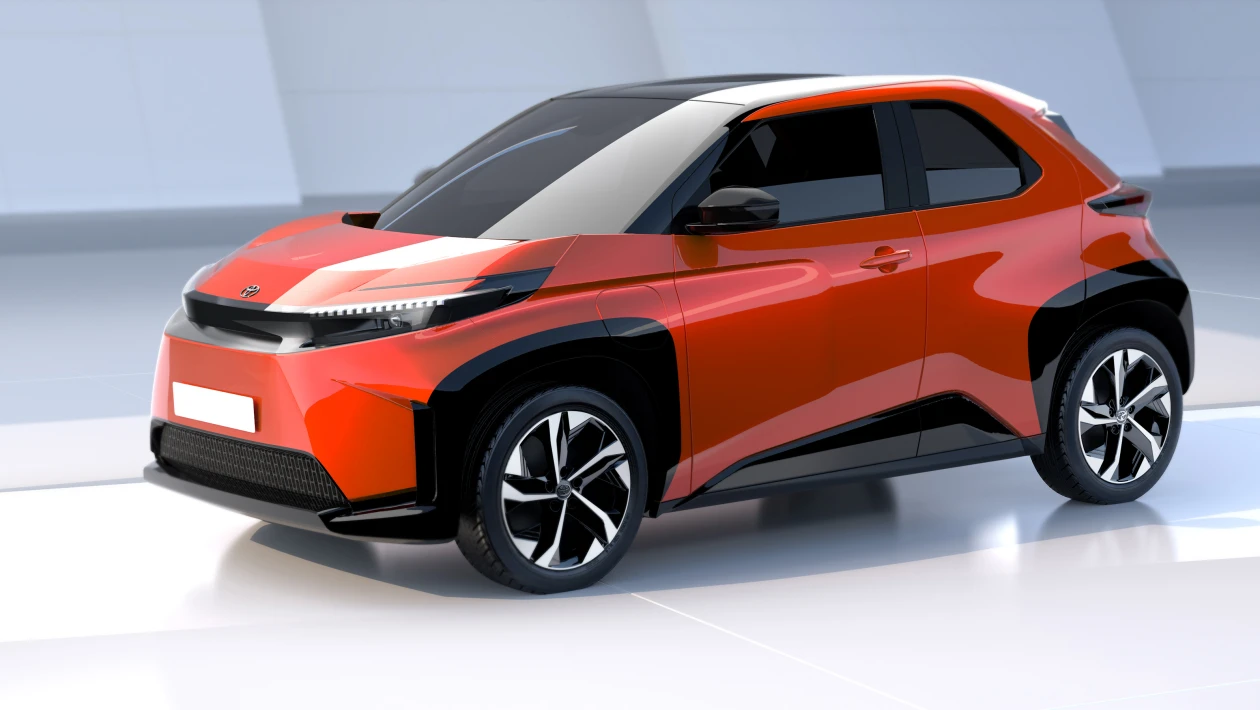
Toyota bZ small crossover
“Specifically, we plan to roll out 30 battery EV models by 2030, globally offering a full lineup of battery EVs in the passenger and commercial segments,” Toyota Motor Corporation president Akio Toyoda explained during the media briefing.
“We will not only add battery EV options to existing vehicle models but will also offer a full lineup of reasonably priced mass-production models, such as the bZ series, to meet the needs of all kinds of customers. By doing so, we hope to deliver to customers around the world the unique and beautiful styling as well as fun-to-drive aspects of battery EVs, and the experience of a life with battery EVs.”
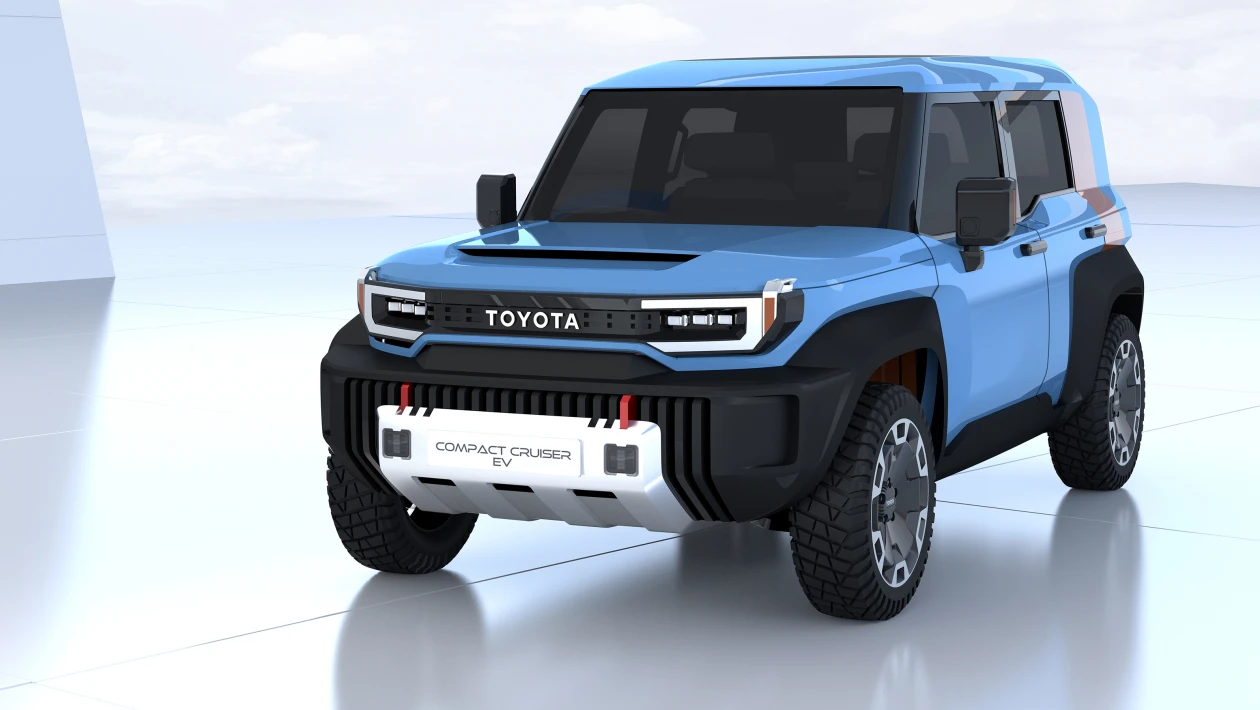
Toyota Compact Cruiser EV
Among the most notable of Toyota’s 11 concepts were four ‘bZ’ models that will sit alongside the recently launched bZ4X SUV. The latter is set to begin production at Toyota’s Motomachi Plant ahead of its launch next year.
Chief among these four bZ concepts was a compact SUV, the more rakish design of which draws parallels with Toyota’s existing C-HR hybrid SUV, and a small crossover prototype that’s aesthetically similar to the company’s Aygo X. While focus on the former’s “beautiful silhouette” simply “presages a new era for battery Evs” and little else, the compact crossover is said to be aimed at the European and Japanese markets, with a cabin design dedicated as such. No further comments were made regarding a possible North American market.
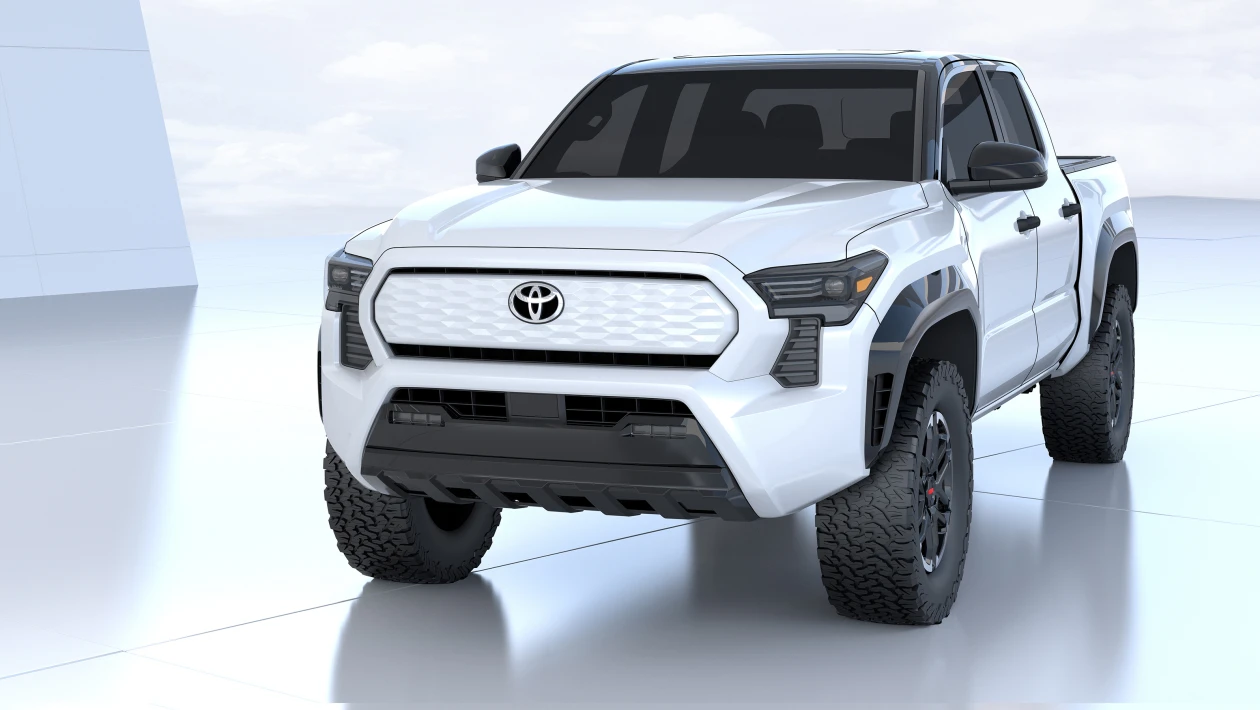
Toyota pickup EV
More significant than that though was Toyota’s drive for reduced power consumption in its EVs, with the compact crossover at the forefront of development. Mr Toyota even suggested this consumption could drop as low as eight kilometres per kWh.
“The more batteries you add to extend cruising range, the bigger, heavier, and more expensive a vehicle becomes. Because this SUV is a small vehicle, there is something we must be thorough and very particular about. And that is―power efficiency,” he says. “Putting our best efforts into all aspects of these, with this vehicle, we are aiming for a power consumption of 125 watt-hours per kilometre, which would be the highest in the compact SUV class.”
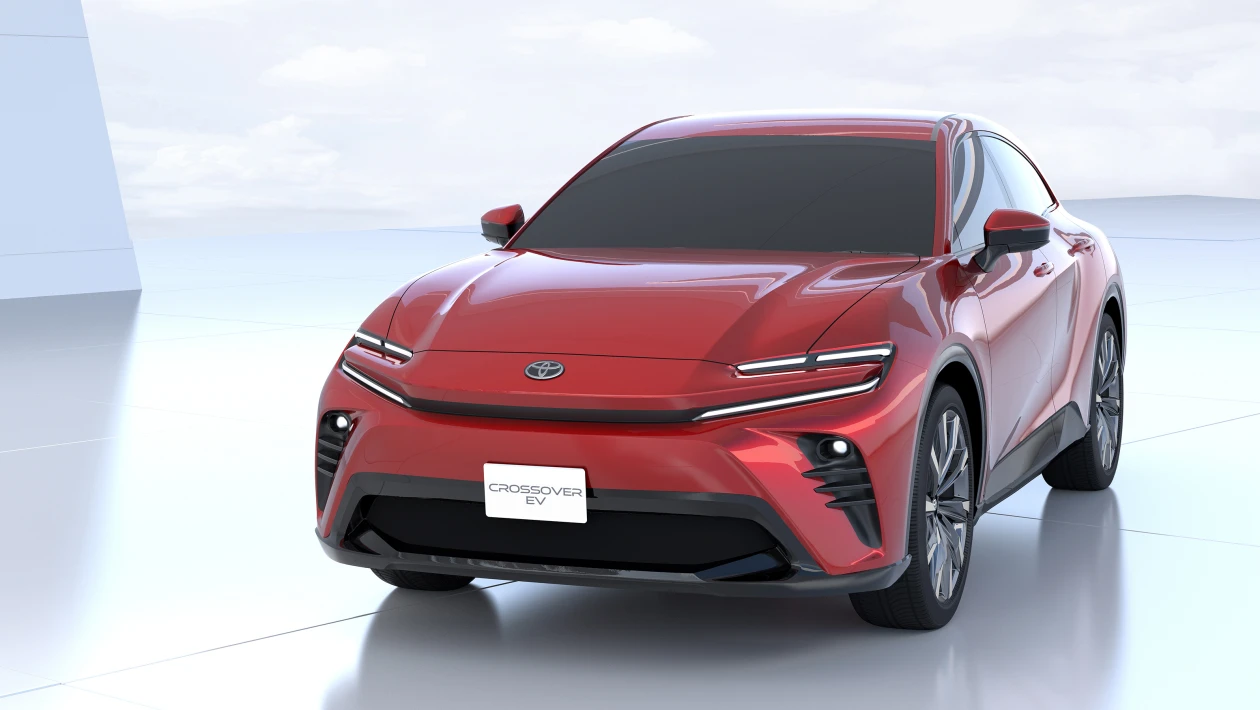
Toyota Crossover EV
During the briefing, Toyota, also showcased, but provided few details on, the more “diverse Toyota battery EVs” that may emerge under its electrified directive, including a Hilux-esque pick-up truck, an FJ Cruiser-inspired electric SUV, a compact urban mobility concept, and the latest evolution of the self-driving ‘e-Palette’ first introduced in 2018. The diversity of the range reflects Mr Toyoda’s comments that…
“We are living in a diversified world and in an era in which it is hard to predict the future. Therefore, it is difficult to make everyone happy with a one-size-fits-all option. That is why Toyota wants to prepare as many options as possible for our customers around the world.”
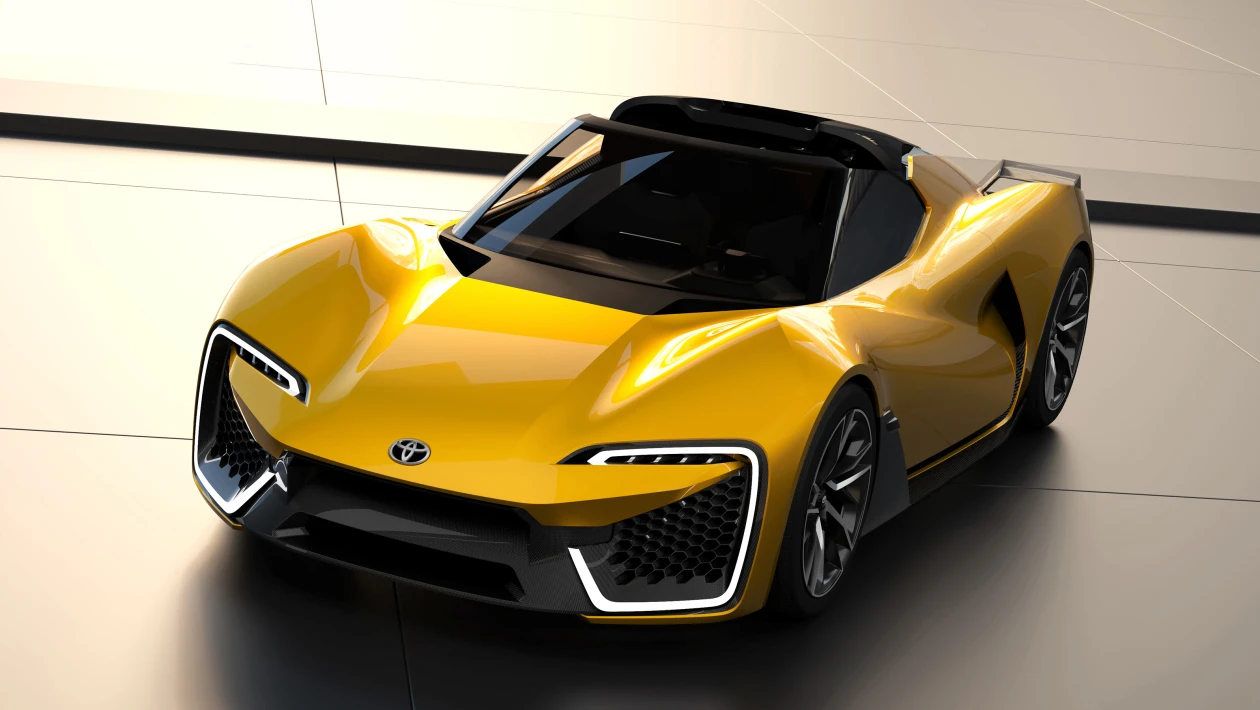
Toyota Sports EV
No further technical details were revealed regarding these ‘bZ’ models, so-called in reference to the corporation’s ‘beyond Zero’ emissions objective.
The carbon-neutral / carbon-reducing nature indicative the 11 concepts also extends to the corporations’ manufacturing facilities, the aim of which is to make each carbon neutral by 2035. In preparation for this, Toyota is planning to invest an enormous four trillion yen (around $45.3 billion) into its BEV program.

